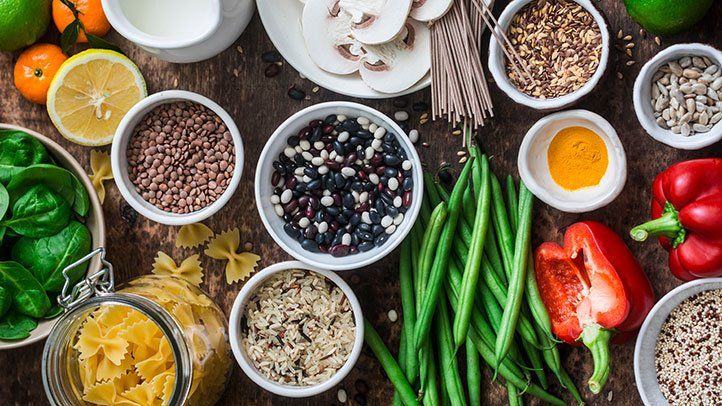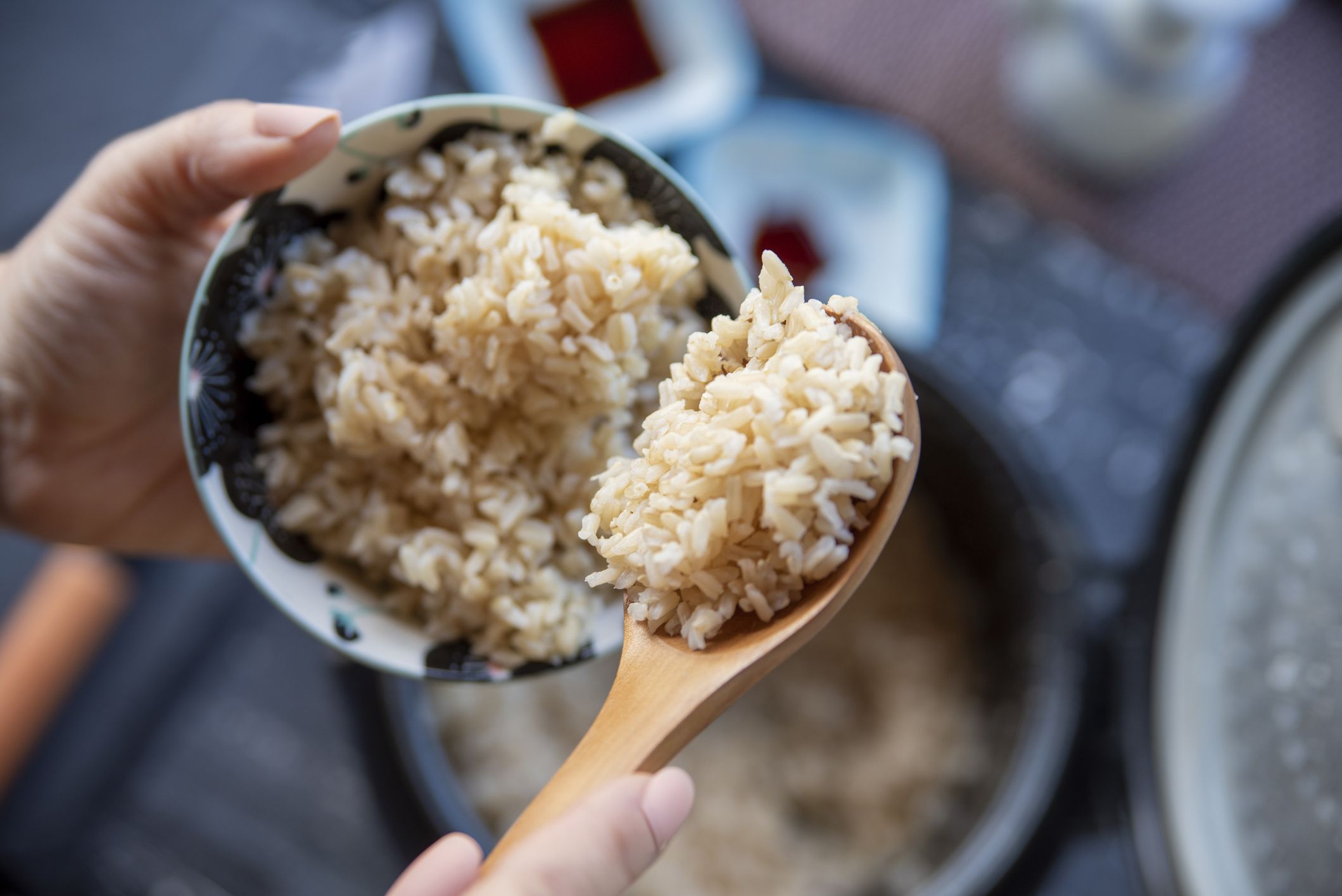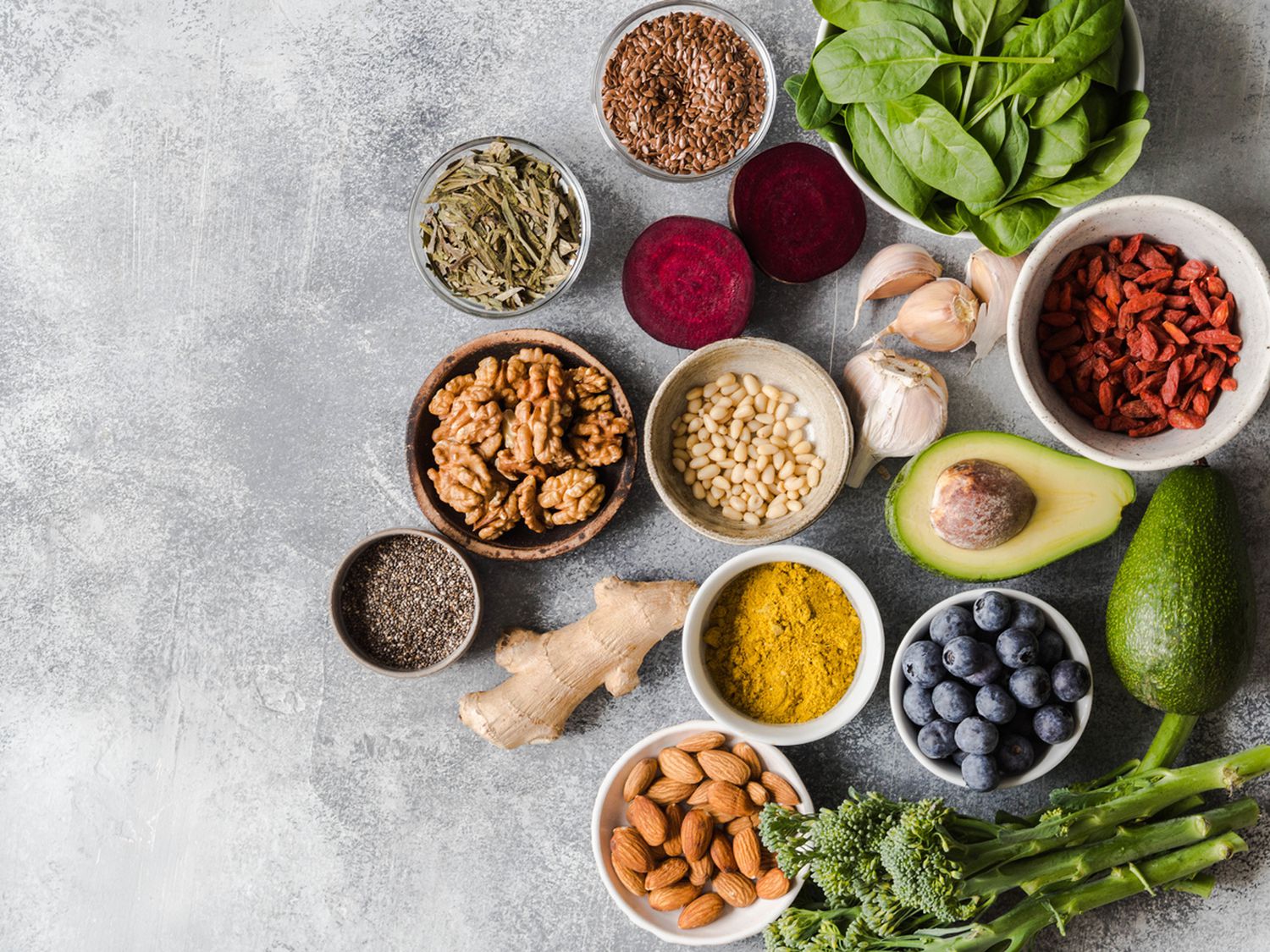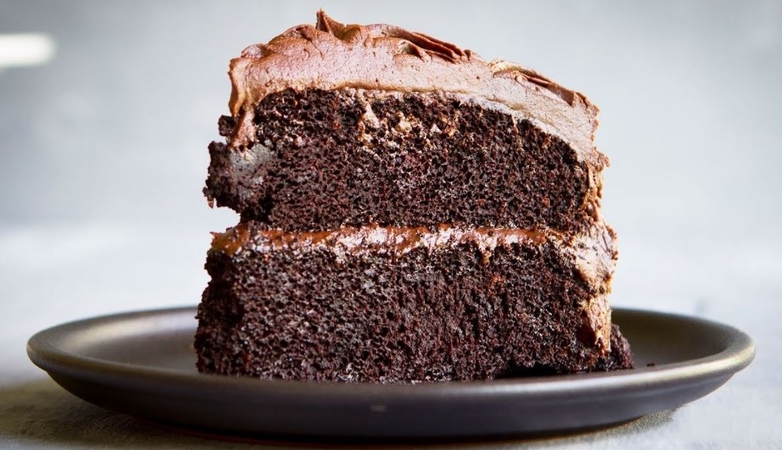
Ultimate Guide To The Low Carb Vegan Diet
low carb vegan
Combining Veganism With Low-Carb Diets
It is possible to stick to a low carb vegan diet, which usually eliminates any items derived from animals, including dairy and eggs, while simultaneously adhering to a low carb or ketogenic eating plan if the appropriate strategy is taken and the proper guidance is followed.
We think that everyone, regardless of their eating habits, should be given the chance and information necessary to live the healthiest life possible while consuming the fewest carbohydrates possible. Curious whether it is possible to follow a ketogenic or low-carb vegan diet simultaneously, we are here to reassure you that it is feasible and viable.
What Is A Vegan Diet?
low carb vegan
People who follow a vegan diet don't consume any products derived from animals, including gelatin, which originates from animal skins and bones.
Is there a difference between being "plant-based" or vegetarian and being vegan? Not necessarily. Although the names are frequently used synonymously, they refer to two separate things. Additionally, a vegan or vegetarian diet is not always a diet that is high in nutrients. For instance, white bread, cane sugar, crackers made with refined flour, and sweets can all be made in a vegan or vegetarian-friendly manner.
There are many different ways to define plant-based diets. While fruits, vegetables, and other plant-based foods are the primary emphasis, some may also include trace quantities of animal products.
Individuals often choose plant-based diets for ethical, moral, or health-related reasons. Vegans abstain from using any products derived from animals, including clothes and other items created from animals (such as leather, wool, or suede), for some or all of the same reasons listed above.
Why Should Low-Carb And Vegan Diets Be Combined?
Why Should Low-Carb And Vegan Diets Be Combined?
It can seem counterintuitive at first to combine low-carb and vegan eating styles. Vegan diets exclude all foods derived from animals, and as a result, they tend to be low in fat while high in carbohydrates. Diets considered ketogenic or low-carb include animal products and offer plenty of fat while providing few carbohydrates.
On the other hand, you can get the advantages of a low-carb lifestyle while adhering to a vegan diet. One of these benefits is a reduction in feelings of hunger, which, in comparison to other diets, might result in higher amounts of weight loss.
Other advantages of following a low-carb diet include improved management of diabetes and insulin resistance, lower blood pressure, and a host of other benefits, all of which are detailed in our guide to the science behind low-carb eating.
Please consider that we do not believe consuming foods derived from animals is inherently harmful. You may find further information on this topic in our recommendations about red meat, dairy products, and saturated fat. Despite this, it is our goal to be of assistance to everyone, regardless of whether or not they choose to consume goods derived from animals.
Investigations Into Vegan Diets Low In Carbohydrates
Investigations Into Vegan Diets Low In Carbohydrates
Vegan diets that are well-planned and based on nutritious whole foods can offer enough protein and the majority of the vitamins and minerals required for optimal health, but not all of them.
If you do a simple search online, you will find motivational tales from people who have successfully followed a low-carb or keto-vegan lifestyle. One of these stories comes from a spinal surgeon named Carrie Diulus, who suffers from type 1 diabetes.
But low-carb vegan diets haven't been researched much, except for a two-part clinical trial that evaluated an "Eco-Atkins" approach.
In the first part of that trial, which lasted for four weeks, 47 overweight persons with elevated cholesterol levels were randomly allocated to follow either a higher-carb vegetarian diet that contained eggs and dairy or a lower-carb vegan diet with fewer carbohydrates overall.
Both groups adhered to a calorie deficit, and while both groups lost about the same amount of weight, the group that consumed fewer carbohydrates significantly improved their cardiovascular risk factors. Another advantage is that participants in the lower-carb vegan diet group reported more satisfaction with their food.
Investigations Into Vegan Diets Low In Carbohydrates
In the second portion of the experiment, each group was given free rein to consume as much of the approved meals as their stomachs could hold. After six months, those who followed a lower-carb vegan diet had a more significant increase in their HDL cholesterol, a greater decrease in their LDL cholesterol, and a more substantial reduction in their triglyceride levels than those who followed a higher-carb vegetarian diet.
It was relatively little research with a significant attrition rate, similar to many other nutrition experiments. Also, the lower-carb group didn't lower in carbohydrates; daily consumption averaged roughly 100 and 140 grams of carbs, respectively, during the first and second phases of the study. The findings, however, indicate that adopting a low-carb vegan diet is possible, which may help improve specific risk factors for cardiovascular disease.
The top five things to keep in mind while following a vegan diet that is low in carbs
- Protein
- Carbs
- Fats
- Nutrient density
- B12
Check out our comprehensive food list if you want to learn what you can eat while adhering to a low-carb vegan diet. However, before you begin your low-carb vegan diet, you need to make sure that you review this section once more.
The most challenging aspect of following a low-carb vegan diet is ensuring that you are getting enough of the nutrients you need.
Here are the top five suggestions that we have compiled for getting started.
- Prioritize Protein
1. Prioritize Protein
It is crucial to get enough protein; on a vegan diet, getting enough protein is even more critical because the quality of the protein counts just as much as the amount.
I'll explain why. Following digestion, protein in the food you consume is converted by your body into amino acids, which are referred to as the "building blocks" of protein. Twenty different amino acids may be found in protein, but only nine are considered essential. You must get them from your food since your body can't manufacture them independently.
The protein derived from animals is considered "complete" since it contains all of the necessary amino acids in the appropriate proportions for your body. However, plant proteins (except for soy and nutritional yeast), in general, are considered "incomplete" since they do not contain enough quantities of one or more necessary amino acids.
What's the upbeat report? Combining a variety of plant species makes it possible to obtain all of the necessary amino acids in the required quantities.
protien
What's the terrible news? Cutting back on carbohydrates requires cutting back on several dietary combinations that supply "complete" protein. For instance, vegan diets frequently combine legumes such as beans and peas, which are rich in one amino acid called lysine but low in another called methionine, with grains, which are rich in methionine but poor in lysine. Combinations like these, which are high in carbohydrates, are not recommended for use with a diet low in carbohydrates.
Check out our vegan, low-carb protein sources to pick high-quality protein without consuming excessive carbohydrates.
Now we will discuss "quantity." You should aim for greater protein consumption if you obtain most of your protein from plant sources.
Compared to animal proteins, proteins derived from plants are more difficult for the body to digest and absorb. Because of this difference, individuals who consume a vegan diet can have a more significant requirement for protein than those who consume a diet that does not exclude animal products.
protien
Plant proteins vary in quality and digestibility, but soy protein is the same as animal protein. Vegans who routinely consume soy may not require significantly more protein than vegans who consume animal products; however, vegans who forgo soy may need around 30 percent more protein than vegans who use soy.
On a diet low in carbohydrates, how much of a daily intake of protein is recommended? Utilize the detailed chart below to calculate the minimum daily amount of protein you should aim for based on height.
We recommend that most individuals strive for 1.2 to 2.0 grams of protein per kilo of reference body weight. This range was determined by dividing total body weight by kilograms. The target outlined here is the center of the recommended content for daily protein consumption.
It would be best if you did not consume most of your daily protein intake all at once but instead spread it out over the day. It is because your body can make the most efficient use of protein when you consume at least 20 grams at a time. However, you probably don't require more than 35 grams at a time.
protien
Is there a limit to the quantity of protein that one's body can absorb in a single sitting? Aim for between 25 and 35 grams of protein at each meal if you want to achieve your daily protein requirements with plant-based foods, even if not all nutrition experts agree on the ideal quantity.
You will learn how to acquire the proper amounts of the right kinds of plant protein by consuming the items on our list of low-carb vegan protein sources.
- Keep Track Of The Number Of Carbohydrates You Eat.
2. Keep Track Of The Number Of Carbohydrates You Eat.
Which vegan diet is better for your health and easier to stick to over the long term: a keto vegan diet or a low-carb vegan diet?
Keto vegan diets are becoming increasingly popular but don't provide much room for flexibility. Consuming food constantly may make it challenging for certain people to obtain the necessary amount of certain nutrients. Compared to a vegan keto diet, a low-carb vegan diet contains more foods, such as beans and other legumes, making it much simpler to receive all the necessary nutrients and adhere to this eating plan for extended periods.
Most vegan diets are rich in carbohydrates since many grains and legumes are included in these diets. On the other hand, a low-carb vegan diet can supply anything from 30 to 100 grams of net carbohydrates per day, depending on how stringent you want or need your diet to be.
Keto vegan scrambled tofu with vegetables. 2g
If you so wish, you are welcome to incorporate keto dishes into your diets, such as our vegan tofu scramble or even whole keto days! If you have diabetes or are trying to lose weight, you should try to keep your daily net carbohydrate intake to fewer than 50 grams to get the most out of your efforts.
If you do not have diabetes, you are free to try out various combinations of carbohydrate consumption until you find the combination that gives you the most outstanding results.
- Consume Only Unsaturated Fats.
3. Consume Only Unsaturated Fats.
Most calories you consume on a low-carb diet come from fat; a vegan version is not an exception to this rule. A low-carb, high-fat vegan diet, sometimes known as LCHF veganism, is another name for your new way of eating.
In contrast to carbohydrates and proteins, the number of grams of fat you should ingest is not usually specified. Instead, we suggest increasing the amount of fat consumed at each meal to a level that leaves you feeling full without being too bloated.
Olive oil, avocado oil, macadamia nut oil, and coconut oil or cream are a few delicious plant fats permissible on a low-carbohydrate, high-fat (LCHF) vegan diet. The cocoa butter that may find in chocolate is also excellent.
Because of the level of processing involved, we do not advocate utilizing a significant amount of vegetable and seed oils, even though they are derived from plants. When possible, select one of the natural fats from this list to use in your cooking.
- Choose Nutrient-Dense Vegetables
4. Choose Nutrient-Dense Vegetables
Where should the majority of your carbohydrates come from?
Remember that even vegan protein sources will provide you with some carbohydrates. The remainder should come from a diverse selection of vegetables grown above ground, nuts, seeds, and a few different kinds of berries. These foods give essential vitamins, minerals, and the filling fiber your body needs. Plus, when combined with nutritious fats, their flavor is elevated to an entirely new level.
The following is a list of several low-carb plants that provide some of the vitamins and minerals that are sometimes absent from vegan diets:
Zinc and omega-3 fatty acids are abundant in hemp seeds, and there is only one gram of net carbohydrate per ounce of the sources (28 grams)
Rich in calcium, iron, and zinc, sesame seeds also contain just 3 grams of net carbohydrates per ounce (28 grams)
The green vegetable is rich in calcium, iron, and zinc and has just one gram of net carbohydrate per 100 grams (3 ounces) when cooked. Spinach
The following article will discuss how satisfying your nutrient needs while adhering to a vegan diet may be accomplished.
A low-carb vegan diet that allows for adequate intake of vital nutrients
If you follow a vegan diet, how can you tell if you need to take other vitamins or minerals besides vitamin B12? Vegans have a greater chance of suffering from vitamin deficiencies as compared to persons who consume goods derived from animals.
- Take A Supplement That Contains Vitamin B12.
5. Take A Supplement That Contains Vitamin B12.
You can get most of the critical nutrients your body requires on a plant-based diet. Vitamin B12, which is exclusively found in foods derived from animals, is one of the nutrients you will most likely need to get through dietary supplements.
Vegans who don't take vitamin B12 supplements or eat vegan meals that have been fortified run an extremely high risk of developing a vitamin B12 deficit. Suppose you follow a vegan diet without taking vitamin B12 supplements. In that case, you risk developing significant health issues, some of which may be permanent, including dementia, nerve damage, and anemia.
A daily supplement containing at least five micrograms of vitamin B12 can help avoid vitamin B12 insufficiency. A good selection of vitamin B12 pills for vegans is available in stores and on the internet.
What One Can Consume
What One Can Consume
What should you consume on a low-carb vegan diet now that you are aware of the need to consume a sufficient amount of high-quality protein at each meal, destroy plants that are high in nutrients, and include healthy fats in your meals?
To our good fortune, the following is a lengthy selection of meals from which to select:
The origins of protein (includes protein and net carbs per serving)
Lentils and other legumes:
- One cup of lupini beans has 25 grams of protein in addition to 11 grams of net carbohydrates (166 grams)
- May find 18 grams of protein and 24 grams of net carbohydrates in one cup of lentils (200 grams)
- One cup of black beans has 16 grams of protein in addition to 26 grams of net carbohydrates (170 grams)
- One cup of pinto beans has 15 grams of protein in addition to 25 grams of net carbohydrates (170 grams)
- For every one cup of chickpeas or garbanzo beans, there are 11 grams of protein and 26 grams of net carbohydrates (164 grams)
The exact amount of green peas has 10 grams of protein and 20 grams of net carbohydrates (200 grams)
Soy:
Soy
- There are around 20 grams of protein and 2 grams of net carbohydrates in one cup of canned black soybeans (200 grams)
- Per 3.5 ounces of tempeh, there are around 18-20 grams of protein and 7 grams of net carbohydrates (100 grams)
- 18-20 grams of protein and 7 grams of net carbohydrates are contained in each 3.5-ounce serving of Natt (100 grams)
- 5.5 ounces of edamame beans have 19 grams of protein and only 6 grams of net carbohydrates (155 grams)
- Per 5.5 ounces of extra-firm tofu, there are 15 grams of protein and 1 gram of net carbohydrates (155 grams)
Are you concerned about the impact that soy may have on your health? In all probability, you needn't be. It would appear that the potential advantages of soy much exceed any possible drawbacks, particularly for individuals who follow vegan or plant-based diets. Please review our stance on soy.
Seeds, seed kinds of butter, and nut products:
Seeds, seed kinds of butter, and nut products
- The protein content of 25 grams and net carbohydrate content of 4 grams are found in every half cup of hulled hemp seeds (80 grams)
- For every half cup of sacha inchi seeds, there are 18 grams of protein and 1 gram of net carbohydrates (56 grams)
- A half cup of peanuts has 18 grams of protein and 9 grams of net carbohydrates (72 grams)
- 16 grams of protein and 8 grams of net carbohydrates are included in every quarter cup of natural peanut butter (64 grams)
- A quarter cup of almond butter has 15 grams of protein and 7 grams of net carbohydrates (64 grams)
- In a half cup of almonds, you'll get 14 grams of protein and 6 grams of net carbohydrates (64 grams)
- In a quarter cup serving of sunflower seed butter with no added sugar, there are 14 grams of protein and 4 grams of net carbohydrates (64 grams)
- There are 10 grams of protein and 8 grams of net carbohydrates in every quarter cup of tahini (60 grams)
Vegetables
VEGA
The vast majority of vegetables grown above ground have fewer than 10 grams of net carbohydrates per serving, making them suitable for a vegan, low-carb diet. If you want to keep your daily net carb intake to less than 50 grams, you should examine the carb counts of the foods you eat and restrict your consumption of foods with the most excellent carb content.
Why Should You Eat Fewer Carbs?
Over the last 12 years, at least 23 research have demonstrated that following a low-carb diet can assist individuals in achieving their weight loss goals (without calorie counting).
One of the primary reasons is that these diets can drastically diminish hunger, which causes you to consume fewer calories without consuming less food. Diets that are low in carbohydrates also benefit health in other ways.
They tend to lower triglycerides and considerably boost HDL cholesterol, regarded as the "good" cholesterol. They are particularly successful at lowering dangerous belly fat and tend to reduce blood pressure and glucose levels in the blood.
DIETS
Although low-carb diets are not required for everyone, they may have significant positive effects on the health of those who are overweight, have metabolic syndrome, have type 2 diabetes, or have certain neurological illnesses.
A vegan diet low in carbohydrates can also greatly benefit one's health. Studies on the eco-Atkins diet (vegan, 26% of calories coming from carbohydrates) have revealed that this diet is significantly more beneficial to one's health than a traditional low-fat and low-fat vegetarian diet.
Different Types Of Vegetarians
There are several subgroups within the low carb vegan community, and nobody consumes any meat or fish. Lacto-Ovo vegetarians and vegans make up the vast majority of vegetarians nowadays. Lacto-vegetarians, sometimes referred to as "vegetarians," consume dairy products and eggs, whereas vegans do not consume any foods produced from animals.











